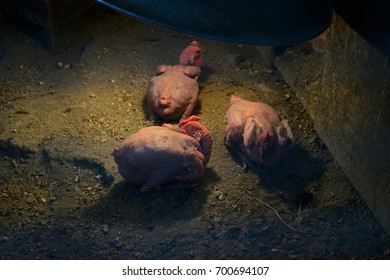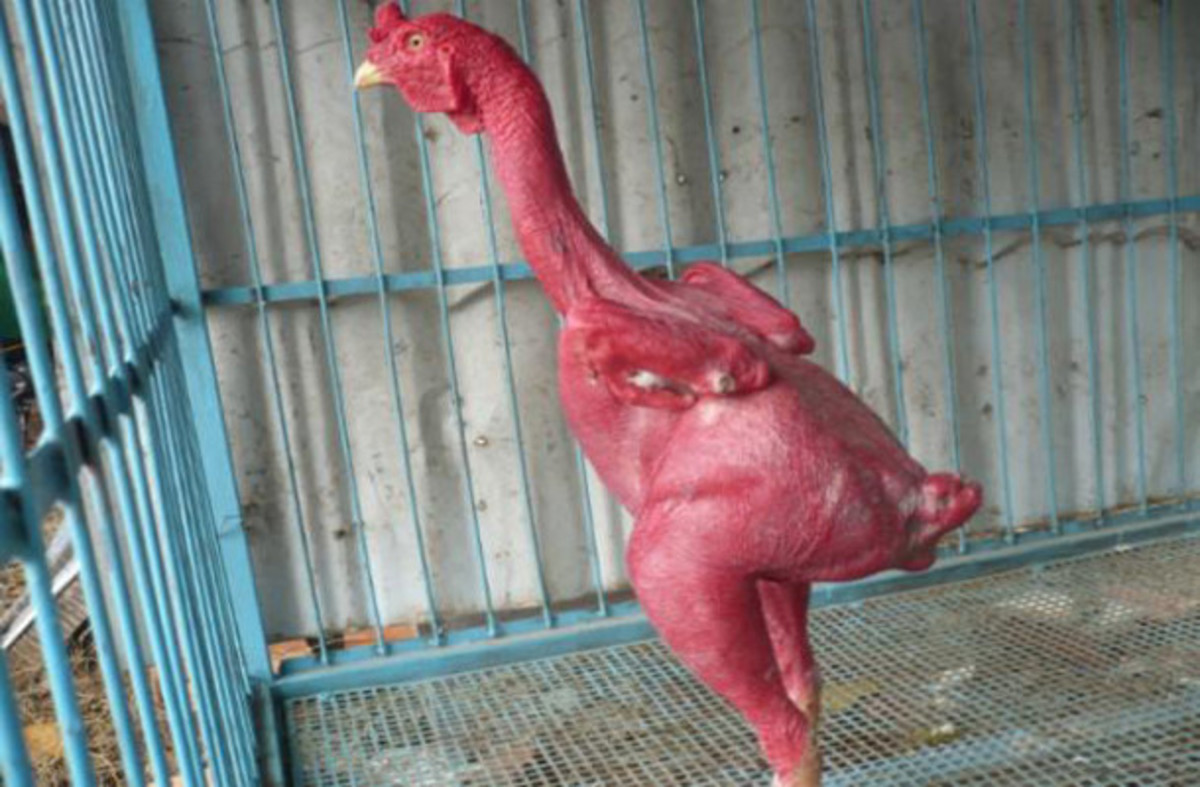ISRAEL – Israeli scientists have bred a species of chicken without feathers. Although featherless chickens look quite scary, poultry farm owners in many countries are very interested in these birds because they do not need to be plucked.
According to the scientists who bred this new bird species, these birds do not cause any harm to human health. Furthermore, they grow faster and their meat is low in fat. According to the project leader, Professor Avigdor Cahaner, at the Institute of Agriculture in Rehvot, Israel, such birds have more advantages because there will be no need to install air conditioning for them in warmer countries. However, geneticists admit that the new chicken species is unlikely to be able to adapt to cold climates. Therefore, raising bald chickens in Scandinavian countries or Russia will be quite difficult.
Opponents of the new species have accused Israeli scientists of creating a genetically modified chicken, The Voice of Russia reported. But scientists refute these allegations and insist that the new chicken comes from a natural breed.
From a scientific standpoint, it is just an ordinary chicken except that it has no feathers. New species are bred through natural selection. Geneticists have spent a long time breeding broiler chickens with chickens that have fewer feathers.

Russian experts have discovered another serious drawback in the new chicken species. Margarita Dmitrieva, Deputy Director of Research at the Russian Poultry Veterinary Institute, said: The absence of feathers creates discomfort during mating:
“When pairing roosters, they can injure hens with their claws and beaks because hens do not have feathers on their head and neck. Even now, two rooster fingers must be removed to avoid injuring the hen. But in the case of a new breed, there will be scratches on the hen’s skin, while the rooster will have nothing to hold on to the beak. This can be quite dangerous for the hen because when other birds see an injured hen, they start plucking her feathers. This means that the hen will have to be quarantined, treated or destroyed,” Dr. Dmitrieva said.

Furthermore, the lack of feathers reduces the chicken’s resistance to many skin diseases. Poultry will continuously suffer from bacterial or fungal infections through wounds on the skin.

Israeli geneticists agree with their Russian colleagues but continue to raise bald chickens. A team of researchers led by Avigdor Cahaner is conducting the experiment. They weigh and measure the new chickens, compare them to conventional chicken breeds, and monitor their populations, feeding, and growth. People who have just tasted dishes made from bald chickens said: “Dishes made from bald chickens taste no different from dishes made from regular chickens.”





